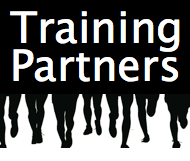An analogy: Imagine there is a pathway before us.
Those who are faithfully following Jesus daily by faith re walking straight ahead, empowered by grace.
To the left is a ditch where the self-absorbed and apathetic get caught up (concerned mostly with self).
On the right is a ditch were a person gets stuck when he or she is over-stressed and overwhelmed. This person cares deeply but is overwhelmed!
Usually when a person is awakened to the Gospel truth, they swerve from one ditch to the other. (Over and over.)
God’s wisdom helps us learn who God is, who we are, and what He asks of us — the faithful pathway straight ahead. We stay on this road by grace-driven effort, neither passively sitting back or doing it all in our strength. God designed that when we follow Him we turn neither to the left hand or the right.
Jesus walked this path perfectly for us, and invites us to join Him, walking in His steps.

The Pathway: turning neither to the left or the right
This happens as we are daily rejoicing in our salvation received by grace, devoting ourselves to the good works He brings in front of us. People who are becoming generous with their time, talents, and treasure are resisting the urge to fall into the ditch on the left, and have spent time in the ditch on the right.
Do you notice how these people are compelling? You notice there is something different about him or her, as they are caring in their interactions with others — speaking to the person no one else notices, pausing from the break-neck pace to help someone in need. They see the hurting and marginalized.
How do we begin on the path?
Repent and believe the Gospel. Quit trusting in yourself, and place your full confidence in Jesus, the Righteous One, who lived the life we have failed to live (pleasing God perfectly from a pure heart), and died the death we should die (receiving the full wrath of God).
How do we stay on the path?
Continue Repenting and believing the Gospel. The oft-used metaphor of walking shows us it is a long obedience in the same direction, marked by repentance and renewal.
Walk. Step-by-step. Neither worrying we will fall off, nor thinking that life would be better on another path. (That is, walking on the path is no so much about self — it is about God and others.)
All of this with grace-driven effort.
“But I say, walk by the Spirit, and you will not gratify the desires of the flesh.”
—Galatians 5:16
“Him we proclaim, warning everyone and teaching everyone with all wisdom, that we may present everyone mature in Christ. For this I toil, struggling with all his energy that he powerfully works within me.”
—Colossians 1:28-29
“Therefore, since we are surrounded by so great a cloud of witnesses, let us also lay aside every weight, and sin which clings so closely, and let us run with endurance the race that is set before us, looking to Jesus, the founder and perfecter of our faith, who for the joy that was set before him endured the cross, despising the shame, and is seated at the right hand of the throne of God.”
—Hebrews 12:1-2
 This morning I was grateful to lead a sixth grade boys Bible study. Exactly thirty boys entering their teen years were mostly respectful, and enthusiastic. Sometimes rowdy, mostly funny, and definitely happy to be there among friends, they returned each time to listening to an adult persuade them to trust God and live in His goodness. Thankfully I know many by name, so I can speak into their lives with credibility.
This morning I was grateful to lead a sixth grade boys Bible study. Exactly thirty boys entering their teen years were mostly respectful, and enthusiastic. Sometimes rowdy, mostly funny, and definitely happy to be there among friends, they returned each time to listening to an adult persuade them to trust God and live in His goodness. Thankfully I know many by name, so I can speak into their lives with credibility.

 The world is smaller, bigger, better and badder than you think.
The world is smaller, bigger, better and badder than you think.




 The Apostle Paul wrote this God-inspired letter sometime around AD 60 from a prison cell (or house arrest) in Rome. He wrote to this faithful church in Philippi, because he loved them, and primarily as a thank you for their sending one of their best to his side, with a personal gift. He met them about a decade earlier (see Acts 16:14-40), and they received the Good News of Jesus as from God. In this letter, which is a short 104 verses, he outlines what the Christian life shall look like, and God’s plan for true community built around Jesus. There’s much in there about happiness, humility, holiness, and contentment. Sounds like a letter we all need to read. (Even memorize.
The Apostle Paul wrote this God-inspired letter sometime around AD 60 from a prison cell (or house arrest) in Rome. He wrote to this faithful church in Philippi, because he loved them, and primarily as a thank you for their sending one of their best to his side, with a personal gift. He met them about a decade earlier (see Acts 16:14-40), and they received the Good News of Jesus as from God. In this letter, which is a short 104 verses, he outlines what the Christian life shall look like, and God’s plan for true community built around Jesus. There’s much in there about happiness, humility, holiness, and contentment. Sounds like a letter we all need to read. (Even memorize.  If we take a step back and ponder our traffic jams, heightened stress, overspending, and ridiculous expectations of family members, we might well laugh a bit at ourselves — or be drawn to despair. How have we missed the essence of Christmas? (Is it really about if some one says “Merry Christmas” instead of “Happy Holidays” to us while we by things we can hardly afford to impress people with gifts we haven’t given much thought about?)
If we take a step back and ponder our traffic jams, heightened stress, overspending, and ridiculous expectations of family members, we might well laugh a bit at ourselves — or be drawn to despair. How have we missed the essence of Christmas? (Is it really about if some one says “Merry Christmas” instead of “Happy Holidays” to us while we by things we can hardly afford to impress people with gifts we haven’t given much thought about?)
 Happy Thanksgiving! I hope your day has been full of joy, gratitude, laughter, and rest. (And some football with a side of gravy, of course.)
Happy Thanksgiving! I hope your day has been full of joy, gratitude, laughter, and rest. (And some football with a side of gravy, of course.)